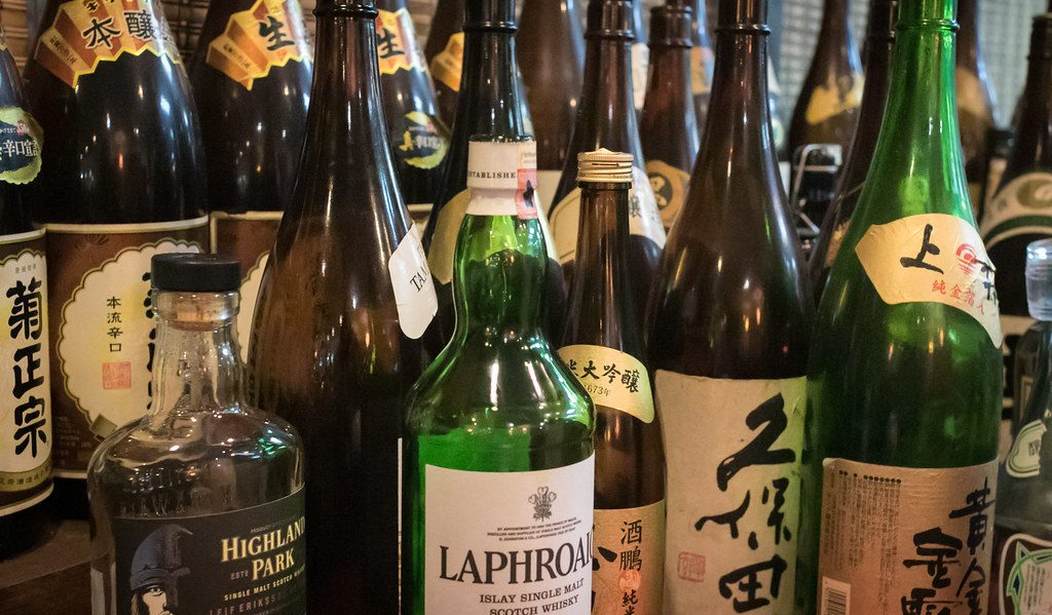We all know that alcohol and guns don’t mix. Having a few drinks is fine. Owning guns is fine. Intentionally mixing the two, however, is a recipe for disaster.
Just because you may have gotten away with it a few times doesn’t mean you always will, and the ramifications of not getting away with it can be severe.
Yet there are many who see this as grounds to try and restrict ownership, apparently.
At least some of them write for The Trace.
Alcohol is implicated in everyday shootings, too. An estimated one in three gun homicide perpetrators drank heavily before killing their victims, according to a recent report from Johns Hopkins Center for Gun Violence Solutions and the Consortium for Risk-Based Firearm Policy. It’s worth noting that the same proportion of gun homicide victims drank heavily before being killed, as did a quarter of gun suicide victims.
But despite a preponderance of evidence, regulation around the intersection of guns and alcohol is a patchwork that depends on inconsistent definitions of alcohol abuse. Also, passing stronger policies meant to address the relationship between alcohol and gun violence has never been a primary focus of gun reform efforts.
“We realized that gun violence and alcohol use were leading causes of injury and death in the United States,” said Silvia Villarreal, the lead author of the Hopkins report. “Alcohol kills 140,000 people annually, and gun violence killed more than 48,000 people [in 2021]. So these issues alone are big problems. But when they’re combined, it’s when they are most deadly.”
Here, we examine the intersection of alcohol and guns.
…
Federal law prohibits someone from buying a gun if they are “an unlawful user of, or addicted to, marijuana or any depressant, stimulant, narcotic drug, or any other controlled substance.” But alcohol is excluded from the federal definition of depressant and is not considered a controlled substance. As a result, regulating alcohol consumption and gun ownership is left entirely to the states.
State-level prohibitions generally relate to four categories of behavior: the possession and carrying of guns; the issuance of permits to purchase or carry guns; gun sales; and carrying guns in places that serve or sell alcohol.
In short, it seems The Trace is bothered by the fact that people who drink can own guns.
However, as they almost note, drinking is legal. People can go out and have a drink or two and still be perfectly fine owning a firearm. Further, they don’t forfeit their right to defend themselves because of a drink or two, either.
Admittedly, they’re more concerned with “chronic” abusers of alcohol.
The problem is, and The Trace acknowledges this, there’s almost no legal definition of that term. What’s more, it’s kind of impossible to determine.
For one thing, alcohol doesn’t stay in one’s system as long as many illegal drugs will.
What’s more, because of it’s legality, it’s really hard to tell if someone abuses alcohol in the first place. From a legal standpoint, at least.
That’s because the metrics available to law enforcement aren’t exactly precise.
If you catch someone with, say, 25 mg of hash oil–like YouTuber FPS Russia was–you know they have an illicit drug and know what the line is with regard to guns. Unless, of course, your father is president, then all bets are off.
If you catch someone with a gun and a bottle of Maker’s Mark, well, so what? You can’t determine if they’ve got a problem or just like the odd whiskey every now and then.
“You could use DUI arrests,” some might counter, and that might make some degree of sense. However, where is the line? A single DUI arrest may just mean a single incident of poor judgment–something we all have from time to time. Don’t believe me? Look at your dating history and just ponder that for a moment–or it may not.
Plus, this is an era when you can have just about anything delivered. I can get booze brought to be through Door Dash, and Georgia has a pretty significant anti-alcohol history.
What that means is that so long as I have money, I can have a drinking problem and never get behind the wheel of a car.
No one is going to say that booze and bang-bangs go well together. They don’t.
But trying to legislate it is a recipe for disaster.







Join the conversation as a VIP Member